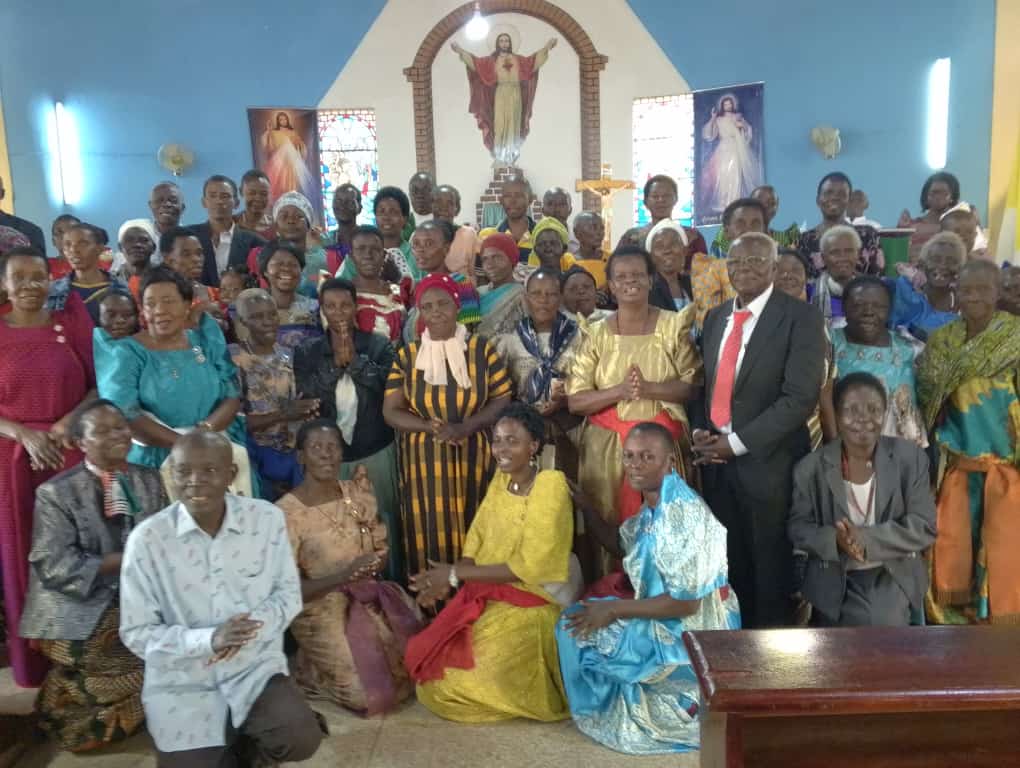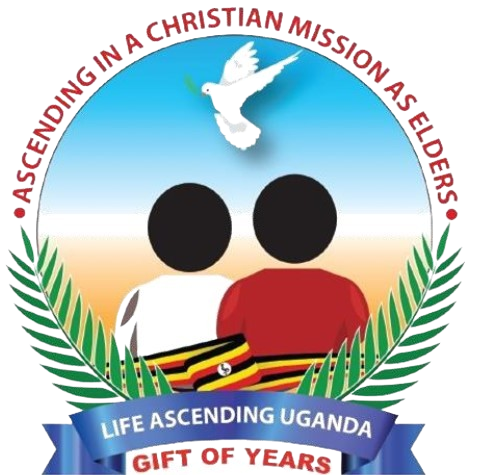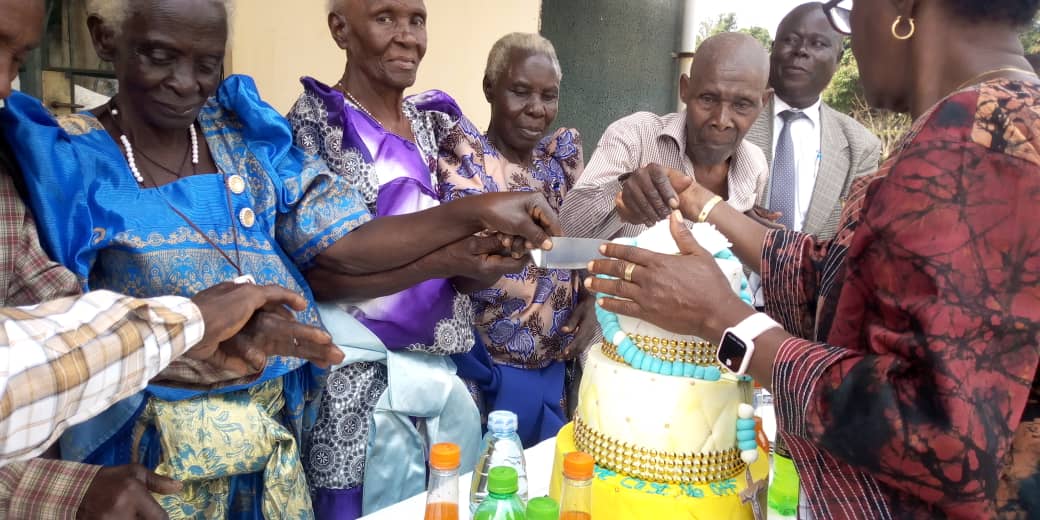- MOGLSD MEETING WITH MEDIA at FAREWEL HOTEL on 4th JULY 2024
- PRESENTED BY: MARGARET MUGENI ATIM ( Co-founder)
- LIFE ASCENDING UGANDA “THE GIFT OF YEARS”
Topic: THE CURRENT SITUATION OF ELDER ABUSE AND ITS IMPLICATIONS IN UGANDA
Theme: “THE ROLE OF THE MEDIA IN MITIGATING ELDER ABUSE IN UGANDA”

Objectives:
- Understanding who are the Elderly
- Recognising and appreciating the value of Elderly in society.
- To highlight factors of change in the life of the elderly
- Recognising what elder abuse is and its’ causes.
- Identifying the different forms of elder abuse.
- Enlisting the implications of elder abuse to the victims, family, society and nation.
- Realising what has been done so far by the media in improving the livelihoods of the elderly.
- Recommendations to enhance positive livelihood of the Elderly through use of media.
WHO ARE THE ELDERLY?
- MOGLSD places elder persons in two groups: From 60 years( the retirement age) to 79 years of age these are the older persons.
- From 80 years and above are the elderly.
- The older persons are the “forgotten generation” while the elderly are the beneficiaries of SAGE, and in many cases also receive charitable services and hand-outs from NGOs and others.
WHAT COULD BE THE DIFFERENCE BETWEEN OLDER PERSONS AND ELDERLY?
Aging has four stages: under normal circumstances
- Independence – when one is still active and undertaking normal activities and has no need for help . (60-70 years olds : older person)
- Interdependence – when one is able to work but with reduced vigour and may at times need some support. (70-79 year olds : older person)
- Dependency – unable to do most normal activities without support. Chronic diseases set in fully and physical limitations impact on their quality of life (the elderly 80 years plus)
- Crisis dependency – Need almost 24 hour support, in developed countries they live in support homes but in Africa they stay with relatives and care takers .
Note that setting in of these stages depends on genetic set up and environmental factors.
The Elderly/ Older Person:
- The word elderly carries the connotation of being weak, disabled, dependant, though the saying goes as “you are as old as you feel”.
- When we talk of older persons , we think they are unable to do anything, they simply need hand-outs, yet they are still able to do many activities.
- The term older person is often inter-changed with elderly and this makes actual older persons invisible and often exposed to elder abuse as well in Uganda.
The Current population of Older Persons and Elders in Uganda
- Only 5% of the Uganda population is aged 60 years and above with 9% being worldwide.
- Life expectancy has increased from 38 years in 1950 to 49 in 1971 to 63 years in 2020 and 64 in 2024.
This is due to;
- reduction in child mortality,
- improvement in health care services
- improvement in social-economic status.
The Values Of the Elderly
The values of the elderly increase with age such as;
- Knowledge and experience
- Wisdom
- Resilience
- Affection
- Stability
- Patriotism
- Tradition and transmitters of culture, skills and crafts
- Even in biblical times God used elders more to carry out His Master plans
- Providing cultural leadership, social cohesion and conflict resolution
- Custodians of customary land and traditions
- Providing support care and protection to widows and orphans
- Wealth creation from agricultural activities and home based creativities
- Transmission of values to young generations
- Valuable resource for guidance and advice
Denial of recognition of these values, skills and virtues atrophy their abilities and deepens their depression.
FACTORS OF CHANGE IN THE CHANGING WORLD OF AN OLDER PERSON
- Health
- Economic with escalating cost of living
- The nature of socialisation due to increasing urbanisation, loss of culture and ageism demands.
- Environmental with related climatic changes
- Technological advances and intricate connectedness
- Spiritual with varied versions
Elder Abuse
- Is a single or repeated act or inappropriate action occurring within any relationship of trust which cause harm or distress to an elder.
- It involves violation of human rights of the elder.
Did You Know?
- Elder abuse never existed in the pre-colonial times due to the traditional governance of communities that viewed the elder with respect.
- The elders were associated with wisdom, knowledge and being in communion with the ancestors / God.
- In essence, the elder was at the helm of respect and power.
Causes Of Elder Abuse In Uganda
- Erosion of cultural norms and values due to; modernisation, migration and urbanisation.
- Intergenerational discord and generational gap
- Population growth leading to increased dependency burden thus the neglect of the elderly in favour of the youngsters.
- Patriarchal nature of the socio-cultural norms.
- Climate change accelerates food/ water shortage thus igniting exploitation and neglect of the elderly.
- Fast change of technology advancement
- History of violet interactions within the family
- Displacement of personal constraints of the abuser to the victim.
Common Forms of Elder Abuse:
- Physical Abuse
- Sexual Abuse
- Neglect / abandonment of the elders
- Emotional Abuse
- Financial abuse
- Self neglect
- Eviction
- Caretaker abuse
- Ageism- “Can anything good come from the elder persons”
- Disrespect, Mockery ,Taunting , Not Worthy Greeting.
Implications of Elder Abuse
To the Victims:
- Traumatic / emotional concerns like anxiety and depressions.
- Premature deaths
- Shame and silence.
- Mistrust develops to those close to them.
- Decisions of self isolation
- Financial deprivation
- Contraction of sexually transmitted infections
- Physical injuries.
To the Society:
- Generational transfer of the behaviour from time to time due to the young ones adapting to what is done currently as acceptable to the present elders and hence perpetuate the actions in the nearby future.
- A curse on to generations which hinders social welfare.
To the Nation:
- Economic losses in terms of economic development due to the less in-put by the active elders.
- Increased public health expenditures to cater for the victims by the government
- Economic losses in terms of economic development due to the less in-put by the active elders.
- Increased public health expenditures to cater for the victims by the government
WHAT HAS BEEN DONE BY THE MEDIA TO IMPROVE THE LIVELIHOOD OF UGANDA’S ELDER PERSONS
- Different media companies such as the Vision group(currently recognised as the leading group) and nation media group have consistently echoed out the problems faced by the elder persons.
- Different media companies such as the Vision group(currently recognised as the leading group) and nation media group have consistently echoed out the problems faced by the elder persons.
- Different media companies such as the Vision group(currently recognised as the leading group) and nation media group have consistently echoed out the problems faced by the elder persons.
- Different media companies such as the Vision group(currently recognised as the leading group) and nation media group have consistently echoed out the problems faced by the elder persons.
Recommendations to enhance positive livelihood of the Elderly through use of media
- We therefore call upon media and civil society to include elder abuse in the centre of advocacy and publicity with the aim of bringing about equality of all persons regardless of their ages through awareness programs.
- There is still need for the media personnel to sensitize the older persons as well as the general population of Uganda about their rights as provided by the legal and policy frameworks in order to reduce elder abuse.
Final Note:
Elder persons and Elders deserve better lives filled with respect, attention, happiness and feel of Belonging




Leave a Reply